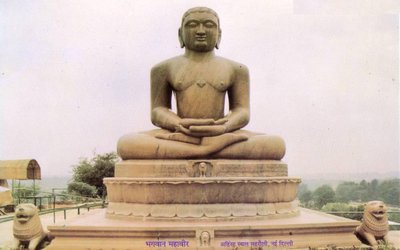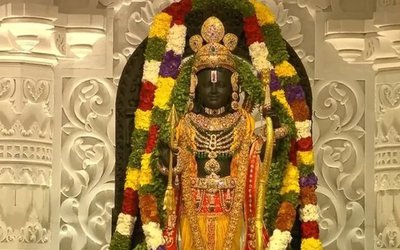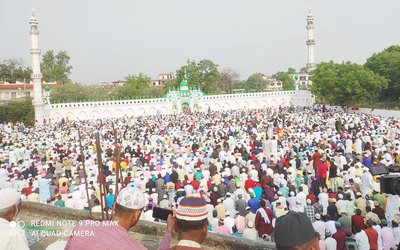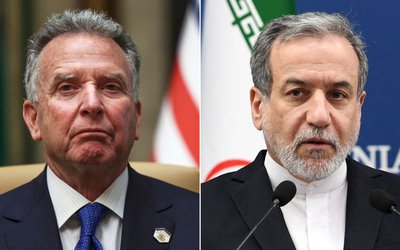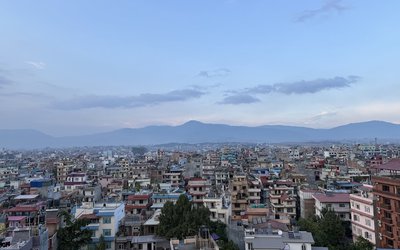
The most popular Hindu festival Laxmi Puja, Deepawali or Diwali literally means ‘an array of lamps. Diwali 2021 date is November 4 as per Hindu.
Goddess Lakshmi is worshipped on the day of Deepawali or Diwali. She symbolises wealth and prosperity in Hindu mythology. People decorate their homes and offices with rice lights, lamps, earthen pots and flowers on Diwali.
They also replace old and broken items in the house with new ones. This is done to welcome Goddess Lakshmi, who is believed to visit every household and bless her devotees on this day. People also observe fast on Diwali and break it after performing the puja.
Lakshmi Puja 2021 Date
Since Diwali is on November 4, Lakshmi puja will also be performed on this day.
Lakshmi Puja 2021 Muhurat and Tithi
According to Panchang, the shubh muhurat for Lakshmi Puja is from 6:09 pm to 8:04 pm. Amavasya tithi starts at 6:03 pm on November 4 and ends at 2:44 am, November 5.
The festival signifies the victory of good over evil – where the good and the evil are present in us. Lakshmi Puja 2021 date is November 14. Diwali 2021 dates and calendar is given below in detail –
Why do we perform Lakshmi Puja on Diwali?
The most important puja performed on Diwali is the Lakshmi Puja dedicated to the Hindu Goddess of prosperity, luck and wealth. But why do we perform Lakshmi Puja especially on Diwali day. Legend has it that Goddess Lakshmi incarnated on Diwali day during the legendary churning of ocean (samudra-manthan) in the Puranas. This is the main reason why Lakshmi Puja is performed on Diwali.
Another legend has it that on Diwali day, Lord Vishnu in his fifth incarnation as Vaman Avatar rescued Goddess Lakshmi from the prison of King Bali.
People perform Lakshmi Puja on the day for peace, prosperity, material wealth and spiritual wealth.
The popular belief is that Goddess Lakshmi visits homes on the day and she is welcomed by keeping the premises clean and neat.
Spiritual Significance of Diwali
O Ram! The light of lights, the self-luminous inner light of the Self is ever shining steadily in the chamber of your heart. Sit quietly. Close your eyes. Withdraw the senses. Fix the mind on this supreme light and enjoy the real Deepavali, by attaining illumination of the soul.
He who Himself sees all but whom no one beholds, who illumines the intellect, the sun, the moon and the stars and the whole universe but whom they cannot illumine, He indeed is Brahman, He is the inner Self. Celebrate the real Deepavali by living in Brahman, and enjoy the eternal bliss of the soul.
The sun does not shine there, nor do the moon and the stars, nor do lightning shine… All the lights of the world cannot be compared even to a ray of the inner light of the Self. Merge yourself in this light of lights and enjoy the supreme Deepavali.
Many Deepavali festivals have come and gone. Yet the hearts of the vast majority are as dark as the night of the new moon. The house is lit with lamps, but the heart is full of the darkness of ignorance. O man! wake up from the slumber of ignorance. Realize the constant and eternal light of the Soul which neither rises nor sets, through meditation and deep enquiry.
May you all attain full inner illumination! May the supreme light of lights enlighten your understanding! May you all attain the inexhaustible spiritual wealth of the Self! May you all prosper gloriously on the material as well as spiritual planes!
Diwali Thoughts - A Fresh Start
Diwali is a symbol of a fresh start, a new beginning. On Diwali, most people begin a new checkbook, as a symbol of a “fresh start,” and they usually write the first check payable to God. This is a beautiful symbol of devotion to Him. It symbolizes that everything we are, everything we have, everything we earn is being laid at His holy feet. This is the beauty of Indian culture. In our yagnas, the mantras end with “idam na mama.” This means, “not for me, but for you, God.”
However, once we’ve written that check to God, placed it in the mandir, said a few mantras and taken prasad, do we actually live any differently? Do we really offer our lives to God, or do we only give Him this one piece of paper each year? The check to God is not an end in and of itself. Rather, it is the means to an end. It is Indian culture’s way of teaching us to always remember God, in everything we do, and to always remember that it is He to whom we owe everything. Without His grace and His blessings, nothing is possible.
This year, let us vow to not only offer God a check (a piece of paper), say a few mantras and then go on with our lives as they were before. But, rather let us vow to live according to the realization that we owe everything to Him and let us truly make an attempt to offer back to Him.
So, this year, write the first check to God. Yes, this is beautiful. Put that check in the mandir. But, then, write the second check to God’s children who are suffering. “He who serves the poorest of the poor is also serving Me,” our scriptures say.
- Foreign Minister Dr. Deuba to head to Bangkok to chair UN Meeting
- Apr 20, 2025
- We Do, What We Say, The Government Will Not Be Afraid: RPP Leader Lingden
- Apr 20, 2025
- Home Ministry warns RPP: Action will be taken if it violates prohibited Areas
- Apr 20, 2025
- Weather Forecast: Partly To Generally Cloudy With Brief Rain In Kathmandu, Pokhara And Janakpur
- Apr 20, 2025
- Korean Embassy Hosts FRIENDS OF KOREA 2025 Event in Kathmandu
- Apr 19, 2025



